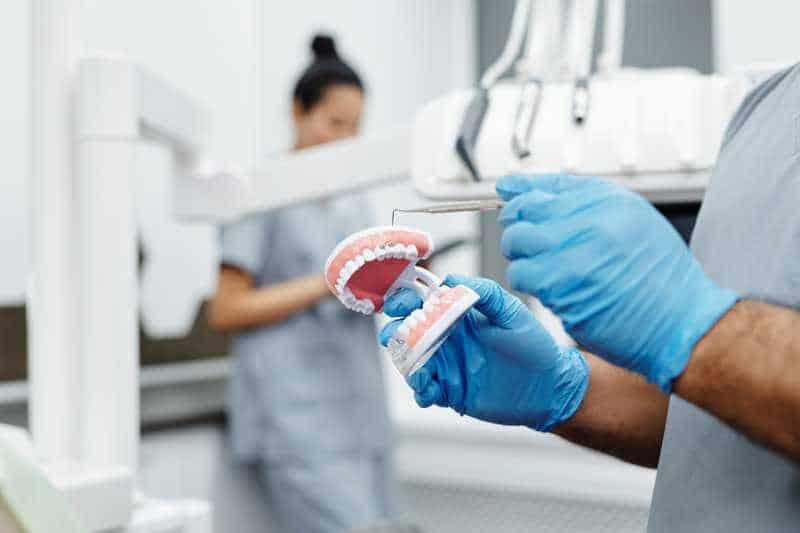Gum disease, also known as periodontal disease, is a common infection that affects the gum tissue. It’s so common, in fact, that the Centers for Disease Control and Prevention (CDC) reports that nearly half of Americans over the age of 30 have some form of the disease. In the early stages, gum disease can often be treated successfully by your dentist in Birmingham. However, if the disease progresses, it could mean serious trouble.
Stage 1: Gingivitis
The least severe stage of gum disease is gingivitis. During this stage, the infection only affects the gum tissue, and treatment can help reverse the disease.
Stage 2: Early Periodontitis
If gingivitis isn’t treated it can progress into the initial stages of periodontitis. When this happens, the infection starts to spread into the areas where tissues connect teeth to bone.
Stage 3: Mild Periodontitis
Following early periodontitis is mild or moderate periodontitis. It’s during this stage when a patient can experience significant bone loss.
Stage 4: Advanced Periodontitis
The most severe case of gum disease is advanced periodontitis where there is more than 50% bone loss.
Signs of Gum Disease
Signs and symptoms of gum disease can vary depending on the stage of infection and can range from:
- Bleeding gums
- Red, swollen gums
- Bad breath
- Receding gums
- Tooth sensitivity
- Loose teeth
If you’re experiencing any signs of gum disease, we recommend scheduling an appointment with your dentist in Birmingham.
How is Gum Disease Treated?
There are a number of ways that your dentist can treat gum disease. Again, it depends on each individual situation. Some of the common treatments for gum disease include:
- Deep Cleaning – A deep cleaning will clean up under the gum line and not just above it like a traditional dental cleaning. This can help remove the infection at the source.
- Antibiotics – Just like when you’re sick, taking antibiotics for gum disease can help fight off bacteria and the infection.
- Surgery – In more serious cases, your dentist may recommend gum surgery such as a gum graft.
How to Lower Your Risk of Gum Disease
The best way to ensure your gums stay healthy is to brush and floss twice daily. Getting into this habit will help remove plaque buildup. Allowing plaque to accumulate on the teeth is what ultimately leads to gum disease in the first place. There are also other ways you can lower your risk of gum disease.
- Stop smoking or using tobacco products
- Replace your toothbrush often – no toothbrush should be used for longer than 3 months
- See your dentist in Birmingham at least twice a year
Don’t let gum disease affect your oral health or your teeth. Keep your biannual dental appointments for regular preventive care so your dentist can detect and treat any problems early.
Accepting new patients at all of our dental offices in Bessemer, Hoover, Centreville, Montevallo, Sylacauga, Columbiana, Gardendale, and Birmingham.









